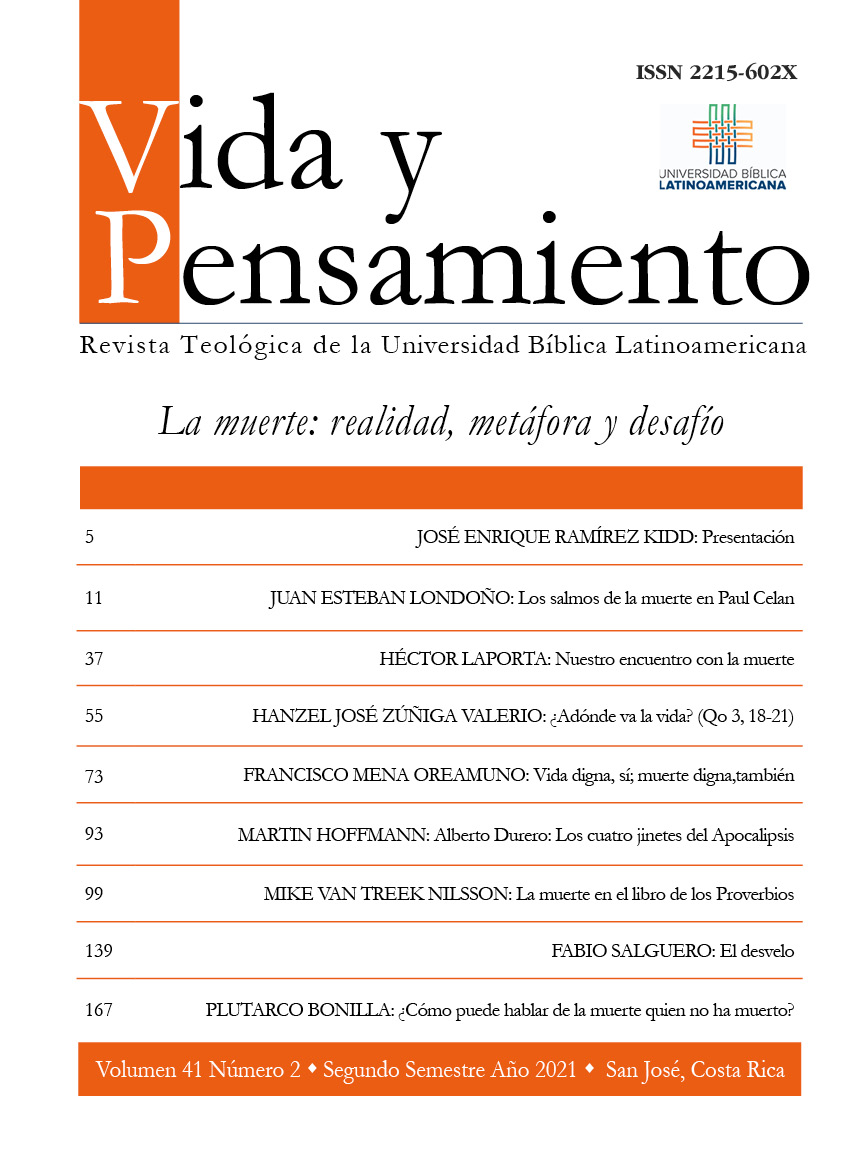How can he who has not died speak of death?
Abstract
The author freely reflects on the subject from the pain of farewell to a loved one and from Christian hope. Death can be “lived” as literal death, that of oneself or as the death of a loved one. What does it mean to reflect on death? It is, first, an attempt to postpone it; then, it means asking ourselves about life, whose end is that. Rather than talking about a thanatology, the author suggests talking about a “thanatoeicasía”: a conjecture, an imagining, a presupposition, even a fantasizing about death, and affirms that the meaning of life does not always have to do with what it is expected that there will, or will not be, at death. History is full of people who, in search of the good of others, sacrificed their own lives without trusting in a reward after death ... and even without believing in any afterlife.
Downloads
Copyright (c) 2021 Plutarco Bonilla Acosta

This work is licensed under a Creative Commons Attribution-NonCommercial-ShareAlike 4.0 International License.
The authors who publish in this journal accept the following conditions:
- The authors retain their author rights y grant to the journal the right of first publication, with the work registered with the Creative Commons attribution that allows third parties to use the published material as long as they give appropriate credit to the author and the first publication in this journal.
-
The authors may make other independent contractual agreements for the non-exclusive distribution of the version of the article published in this journal (e.g. include it in an institutional repository or publish it in a book) as long as they clearly indicate that the work was first published in this journal.

